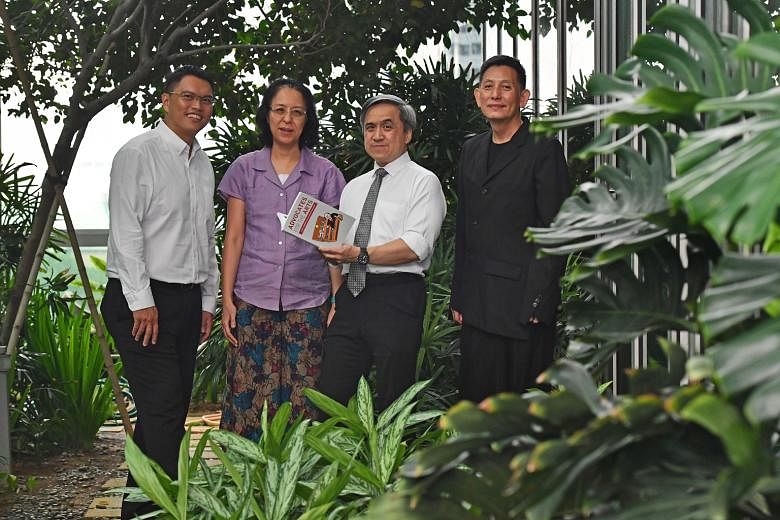SINGAPORE - Freelance videographer Derrick shot and edited a video for a client which did not meet her standards.
But after refunding her full $4,000 payment at her demand and removing his rights to the film, he later found she had released a video containing about 75 per cent of his work.
He was not paid or credited for any of it.
"I did not (sign) an official contract or have the money to engage a lawyer," said Derrick, who did not want to give his full name.
In his four years as a freelancer, he said, he has also had to deal with clients delaying payment for up to six months or paying less than the agreed sum.
At the launch of a free legal handbook, Advocates For The Arts, on Tuesday (Jan 23), Mr Adrian Tan, vice-president of the Law Society of Singapore, advised freelancers to sign a contract with clients containing exact terms and conditions that protect them from such mistreatment.
He encouraged freelance workers to get a professional lawyer to draw up a one-time contract that can be reused with different clients.
Key terms should include the names of both parties, what services are to be provided, the amount, mode and timing of payment and dispute-resolution methods.
The new 12-chapter handbook contextualises laws for the creative arts industry, and aims to inform and educate artists about their legal rights.
It was launched by the Law Society Pro Bono Services (LSPBS) and the National Trades Union Congress (NTUC) at the NTUC Centre in Marina Boulevard.
It provides information on contracts, insurance, copyright and trademark essentials and dispute resolution options. It is written in layman terms and features cartoon drawings.
In 2016, there were more than 40,000 professionals, including freelancers, in Singapore's creative arts industry.
Chief executive of LSPBS Lim Tanguy said: "Although (hiring a lawyer to draw up a contract) may seem like an upfront cost, it is a very good investment because it makes you look more professional and also educates clients on key markers like performance."
He added that contracts should also include agreed details on intellectual property rights, such as the owner of the work's copyright and what purposes each party can use the work for, as well as insurance if there are work-related risks.
Mr Patrick Tay, assistant secretary-general and director of the legal services department at NTUC, said: "We hope to make sure that... workers in (the creative arts) sector, whether freelance or employed, know their rights and privileges, and are safeguarded and protected."
Ms Stella Chung, a freelance scriptwriter in her 30s, is no stranger to unfair treatment.
In 2014, she was fired by a production house and denied the agreed payment of $150 for a draft of a TV series episode she had worked on for three months.
Ms Chung said she lodged a complaint against the company to the then Media Development Authority.
However, when the episode was aired, she found that 70 per cent of the script was her work, which she was not paid or credited for.
She said the legal guidebook will empower freelancers like herself to voice their legal rights and stand up for themselves.
The handbook will be available for download next week on the NTUC U portal (www.ntuc.org.sg) and the Law Society Pro Bono Services site (http://probono.lawsociety.org.sg/Pages/default.aspx).

